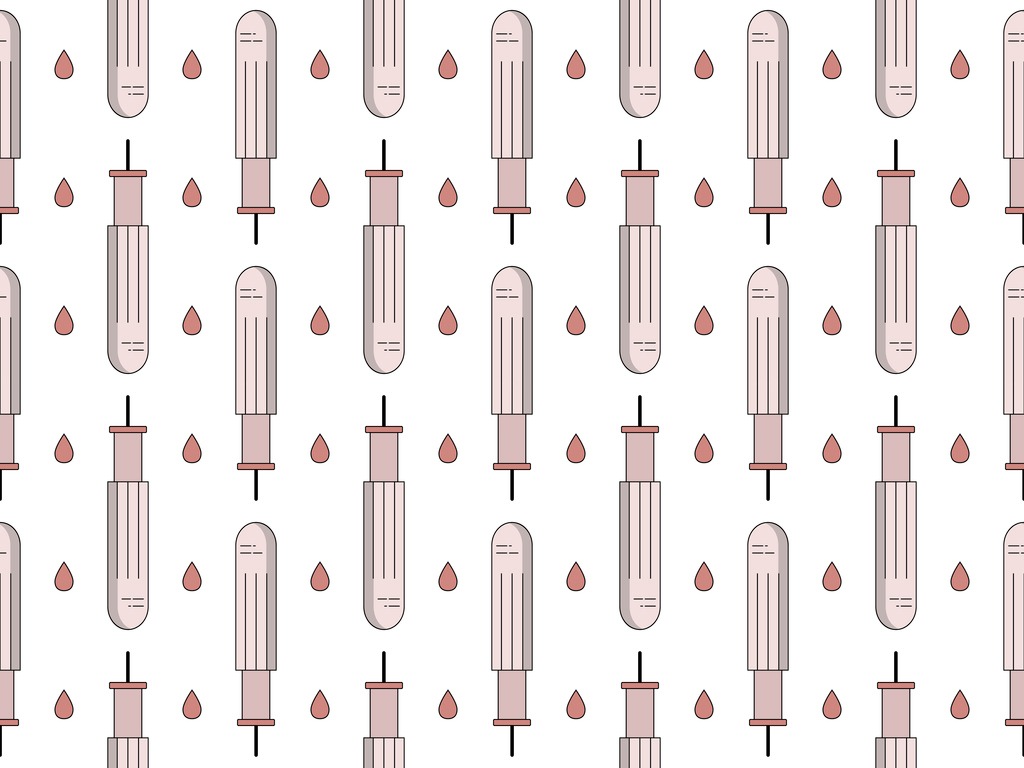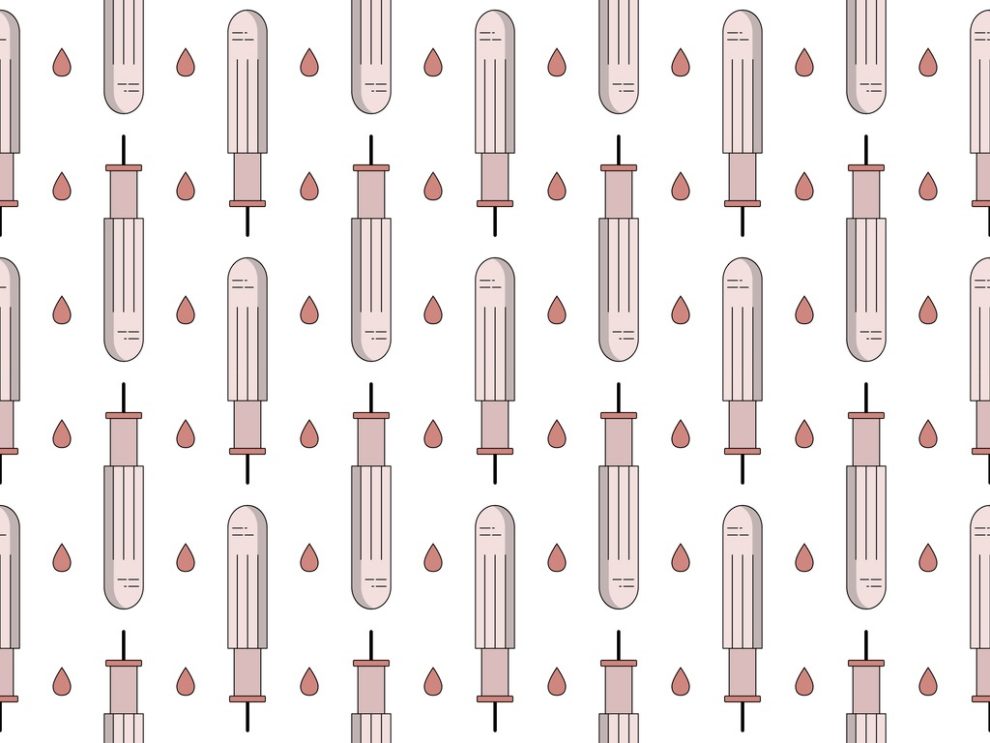Nobody likes bleeding. However, the average woman spends more than 6 years doing just that in her lifetime, naturally.
Despite the fact that women menstruate for most of their lives, there has been little change in the products we use, the way those products are branded, or the way that we buy them.
Incumbent brands like Tampax and Playtex, whether deservedly or not, have come under scrutiny as newer brands move in on the period market with a particular focus on ingredients. The tampon and pad markets are joining health food companies, beauty companies, and other consumer products in the organic, all-natural craze.
With young women all over the country growing up in an online world that may be more cognizant of the problems women face as consumers, startups like Flex, Cora, and others see a generation of potential ahead of them.
Organic Tampons Delivered
Founded by Molly Hayward and Morgen Newman in 2015, Cora is a tampon company aiming to innovate in a space that hasn’t changed much in the past 80 years.
The duo actually became interested in building a business in the tampon industry separately. Molly was first motivated by her international humanitarian experiences working with girls, while Morgan was driven by his wife’s frustrating experiences.
The two founded Cora to tackle a few of the major pain points for people who menstruate. Cora sells organic cotton tampons, which they say provide women with access to a healthy product without having to worry about the existence of potentially harmful chemicals. The company also targets branding, ridding its products of the often child-like, pastel-colored boxes popular among mainstream tampon brands like Playtex and Tampax.
Cora’s direct-to-consumer offering, much like that of its main competitor Lola, allows women to personalize their monthly shipments, mixing and matching sizes and products. The company relied on this D2C model exclusively at the start but now also partners with Target, bringing its tampons and pads to brick and mortar shelves across the country.

“That was a big part of our effort to really say this is not meant to be something that is ultra-premium or exclusive, this is something that we believe every woman should have access to,” Hayward expressed.
The company has raised $6 million in venture funding and is focused on market reach. Cora implemented a free trial over a year ago to bring more women onto the platform. The startup also pays the so-called tampon tax on all of its direct to consumer products. And for every box of Cora tampons sold the company donates a percentage of its profits to its global partners to help provide access to period products to girls in Kenya and India.
“While we are very cognizant of building a business that has healthy margins, profitability is something that we’re willing to delay today in order to achieve a level of scale that is going to put us in a position to be competitive with others in the space,” Hayward told Crunchbase News.
Lola, Cora’s competitor, has expanded beyond periods, launching a line of sex-related products like organic lubricant and condoms. Hayward and Newman, on the other hand, do not see Cora moving in that direction. However, with its online publication Blood and Milk, and its gold tampon necklace, Cora has made its own efforts to destigmatize the conversation about periods beyond producing period products.
While Cora has worked to iterate on the period products many women already use, another startup, Flex, has taken that mission a step further.
Who Needs Cotton Anyway?
Lauren Schulte, the CEO and Founder of The Flex Company, began searching for an alternative to tampons after 15 years of struggling with yeast infections after every period. She tried more than 30 products from all over the world–from tampons to menstrual cups–to make her monthly cycle less painful.
“What I discovered was that most products are made by the same handful of manufacturers. As a consumer, I felt really cheated by that and really frustrated that people are not investing in real innovation,” Schulte expressed.
So she decided to design and manufacture a product of her own. The result was Flex, a period disk that sits past the vaginal canal (where tampons sit) next to the cervix, creating a seal that captures menses. The hypoallergenic disk can be worn for up to twelve hours, and it is disposable, unlike menstrual cups.
However, it’s not easy to change the behavior of consumers who are brought up on pads and tampons from the first time they menstruate. For example, Schulte explained that the menstrual cup, which was invented in 1937, didn’t gain mainstream attention until 2014 when a company launched a Kickstarter campaign that went viral on Facebook.
“The video that they made for their Kickstarter really explained the pain points of tampons and underscored the benefits of menstrual cups in a way that for the first time it landed with the broader American market,” she said.

For entrepreneurs, that push for a cultural shift in the face of multimillion-dollar incumbent brands with strong retail presences is further complicated by fundraising challenges. It comes down to convincing a room full of people who don’t get periods to invest in a period product. After struggling to fundraise herself, Schulte tried a new tactic.
“I decided to position the pitch around the period sex angle because it was something that men can relate to, whereas every man cannot relate to how uncomfortable and dehumanizing it can feel to be on your period and feel smelly, and gross, and crappy, and bloated, and in a lot of pain,” Schulte said.
Schulte says that while the media interest that followed the pitch was unintended—it was a fundraising tactic that became a media angle—it pushed Flex further into the mainstream of startups working on periods. She added that while many of her customers try Flex for the period sex advantage, they have stayed because of its other benefits.
Flex has raised a known total of $7.9 million.1 Most recently, the company raised $3.6 million from investors, while also acquiring Keela, a startup that developed an easily removed menstrual cup. Flex sells products both through its direct-to-consumer platform and in retail stores. Since its launch, its revenue has doubled and Flex hit an eight-digit run rate earlier this year, according to Schulte. Schulte says that 90 percent of Flex’s online sales come from millennials purchasing on mobile.
“I think if we had raised a lot more it would be easier for us to come out with more products faster,” Schulte explained, “But we wanted to make sure that we were being thoughtful in our approach and expansion and not chasing growth for growth’s sake, but chasing innovation.”
Now if we could just match that entrepreneurial spirit with investor representation, we might not have to wait another 80 years for innovation to come along.
iStockPhoto / Anna_Voskoboinikova
Editorial Update: A previous version of this piece stated that the company has raised $7.7 million in total, it has since been updated.↩

Stay up to date with recent funding rounds, acquisitions, and more with the Crunchbase Daily.




![Europe Quarterly Graphic - 2024 [Dom Guzman]](https://news.crunchbase.com/wp-content/uploads/Quarterly-Cowboy-Europe-470x352.jpg)

![Cloud computing device. [Dom Guzman]](https://news.crunchbase.com/wp-content/uploads/Cloud_Computing-1-470x352.jpg)
![Illustration of a guy watering plants with a blocked hose - Global [Dom Guzman]](https://news.crunchbase.com/wp-content/uploads/quarterly-global-3-300x168.jpg)
67.1K Followers